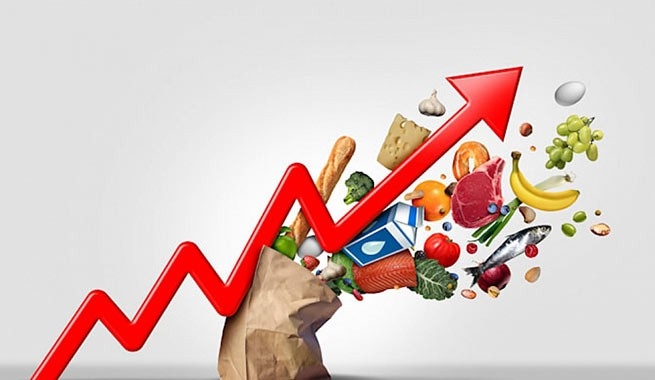Greece’s annual inflation rate slowed further to 7% in January from 7.2% in December, but remained higher from 6.2% in January 2022. However, this slowdown mainly reflects lower electricity prices, while food prices rose another 15.4%.
Statistical Office of Greece ELSTAT reported that price increases between January 2023 and January 2022 were registered for bread products (18.6%), meat (19.3%), fish (2.5%), dairy products, eggs ( 25%), oils and fats (23.1%), fruits (1.2%), vegetables (10.9%), sugar-chocolate candies (9.2%), coffee-cocoa-tea (10.9 %), mineral waters-drinks-juices (7.8%) and alcohol (7.6%).
Heating oil rose 7.1%, clothing and footwear rose 6.5%, rent rose 4%, household items rose 15.7%, pharmaceuticals rose 6.1%, new cars rose in price by 10.1%, used cars up 8.4%, motorcycles up 10.4%), air travel up 52.4%, maritime transport up 26.7%, movie theaters up 16.9% %.
Electricity (-15.4%), audiovisual (-4.9%) and telephone services (-1.2%) fell in price.
The statistics service explained the increase in the consumer price index in January by an increase in the index for food/drinks by 15.4%, alcohol/tobacco by 3%, clothing/shoes by 6.5%, durable goods by 10.6%, health by 2%. .9%, health at 8.1%% in transportation, 3.4% in entertainment, 2.2% in education, 7.8% in hospitality and 5.4% in other goods and services.
The Housing Index fell 0.1% and the Communications Index fell 1.3% in January.
The consumer price index in January decreased by 0.5% compared to December 2022, while the harmonized inflation rate increased by 7.3% in January 2023 compared to January 2022, but decreased by 0.5% in January compared to December 2022, according to ELSTAT.
PS The closer to the elections, the less inflation and the higher the standard of living. If you believe ELSTAT of course…







More Stories
Greece is at the bottom of the EU in information and communication technologies
Real wages in Greece fell by 30%
ELSTAT: inflation increased by another 3.2% in March